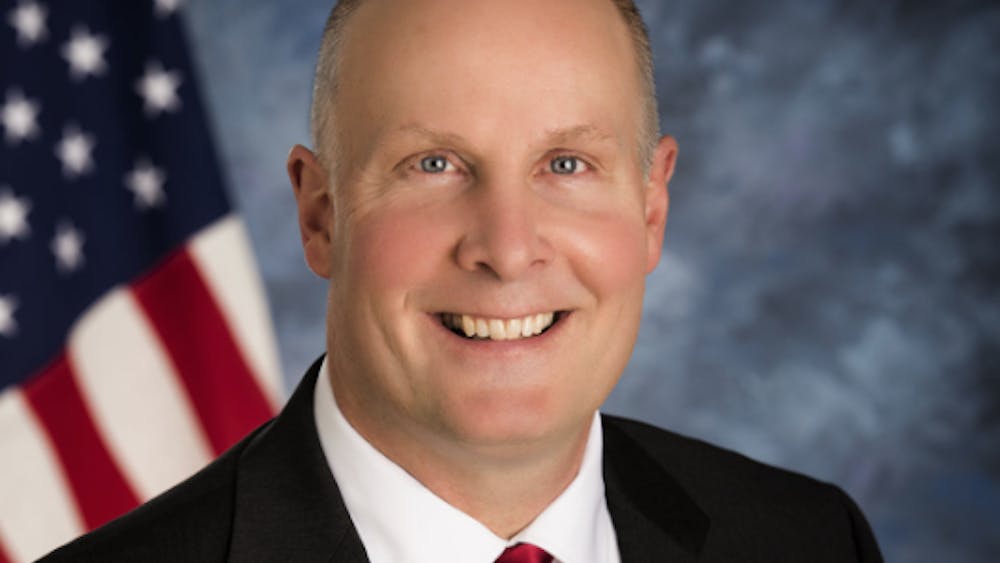Churches partner to provide food, shelter to Mount Pleasant's homeless
He never expected to be here.
The thought of living in a homeless shelter was inconceivable. However, after a falling out with his ex-wife and father, here he is.
For this 29-year-old Mount Pleasant man, who wishes to remain nameless, the Isabella County Restoration House (ICRH) has been essential for him and his fight to get back on his feet.
“I’m thankful for the shelter,” he said. “My kids live in this town and I hope that by the time the shelter closes for the year, I’m able to have a job and can settle down.”
Since Jan. 5, the ICRH has been operating a rotating homeless shelter across the various churches in Mount Pleasant.
As of today, 16 churches participate in the ICRH, where they serve as a temporary homeless shelter for one week. Churches provide food and volunteers, from elementary school students to the elderly.
The ICRH provides a few staff members, toiletries, 23 sleeping mats, 40 blankets and other vital provisions for the night.
The shelter begins its intake process every day around 5:30 p.m. at the Community of Christ Church.
After bags are searched, clients – new and old – are able to register and receive services.
A background check also is done to verify the individual is not a registered sex offender. Sex offenders must instead visit EightCAP.
“We try not to turn any people away,” said Shane Fisher, lead program coordinator at ICRH. “Safety for not only our volunteers is a primary concern and we don’t want to ignore a safety risk.”
At around 6:30 p.m., intake concludes and the participating homeless of the evening are transported to the church of the week.
Fisher said after initially assisting two to four individuals in January, now that the word has spread, the rotating shelter provides for upwards of eight to 10 individuals on a given night.
Once arriving at the church, about 10 volunteers serve church-provided meals, while one day out of the week KFC donates two pieces of chicken for each homeless person.
The meal is followed by that night’s planned activity, which varies from movies to board games. The homeless are awake by 7 a.m. and at 8 a.m. they are transported to the soup kitchen. Then, they are on their own until nightfall.
On Sundays after service, the shelter materials are gathered and then transported to the next participating church.
The impact
Chad Brown, a Mount Pleasant resident and Cornerstone Church pastor, said he enjoyed working with the ICRH staff and the First Presbyterian Church, where this week’s shelter was held.
“Everyone has a story,” said Brown, a first-time volunteer. “I got a chance to sit down and talk with everyone and it’s just good to get to know people. It’s two people swapping stories.”
A 54-year-old homeless man said he was thankful for everything the shelter provided. He said he has been visiting the shelter for the past week.
“I won’t have to come here much longer once the money starts rolling in, but I’m very grateful for what these people have done for me,” he said.
Fisher, who is also a CMU graduate student, said he hopes more churches collaborate with the ICRH, so the rotating shelter might extend beyond its current expected ending in mid-March or April.
Additionally, he wished the shelter could begin again perhaps as soon as November of this year instead of January.
Fisher said it’s important for the unfortunate to be able to find a warm place to stay in all of the cold months and more participating churches are vital.
“Some churches are hesitant and (are) trying to see a trial almost at first, to make sure we’re something more permanent before getting involved,” Fisher said.
In the long term, Fisher said the ICRH plans on developing a non-rotating shelter. However, first the ICRH must procure the necessary funds.
“We eventually want a permanent shelter,” Fisher said. “The problem with that has been funding and maintaining a 24-hour staff.”



